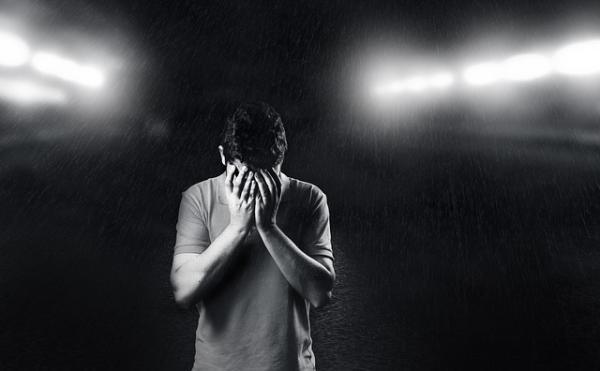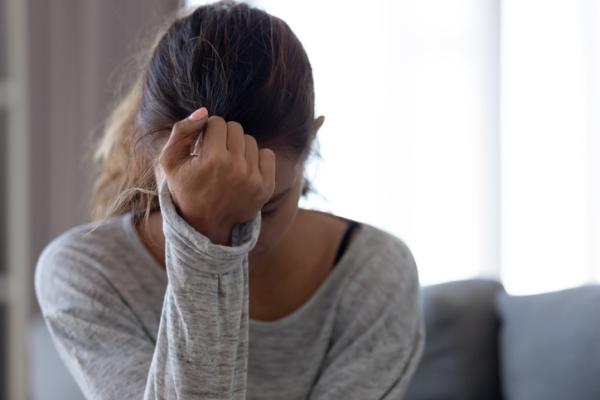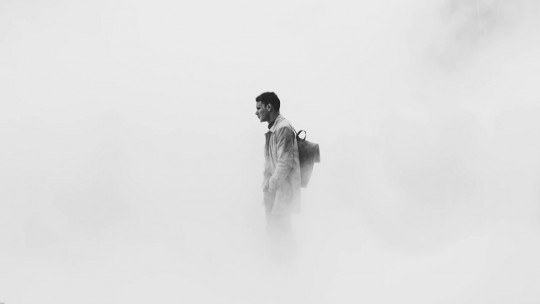Anyone who has ever experienced gym class at school knows the anxiety of being the last one to be chosen on the team. The same hurt feelings surface when you are excluded from lunch with your coworkers, when you can’t get the job you interviewed for, or if your partner leaves you. The fear of being rejected is a powerful emotion that many people have experienced at least once in their lives.
Psychology has always maintained that rejection is one of humanity’s greatest fears. We are biologically driven to feel a need to belong and we get nervous when we risk being misjudged. Precisely for this reason, fear of judgment and social phobia are so widespread among the population. In this PsychologyFor article, we will see What is social rejection, its causes, its symptoms and some tips to overcome it.
Social rejection is a common experience that can profoundly affect our emotional and psychological well-being. Whether it’s being excluded from a group, rejected in a romantic relationship, or dismissed in a professional setting, the experience of rejection can be deeply painful. In this article, we’ll explore the nature of social rejection, its impact on individuals, and practical strategies for coping and recovering from these experiences.
What Is Social Rejection?
Social rejection occurs when an individual is excluded or dismissed by others. It can take various forms, including:
- Interpersonal Rejection : Being left out of social gatherings, ignored in conversations, or not receiving support from friends and family.
- Romantic Rejection : Being turned down by a romantic interest or experiencing a breakup.
- Professional Rejection : Facing rejection in job applications, promotions, or workplace recognition.
The Psychology of Rejection
Understanding the psychological aspects of rejection can help us better grasp why it affects us so deeply. Social rejection can trigger feelings of inadequacy, loneliness, and low self-worth.
- Self-Esteem : Rejection can impact self-esteem, leading individuals to question their value and place within social groups.
- Attachment Styles : People with anxious attachment styles may experience rejection more intensely due to their heightened sensitivity to perceived threats to their relationships.
- Social Belonging : Humans have an inherent need for social connection and acceptance. Rejection can undermine this fundamental need, leading to distress.
The need for acceptance and belonging to a social group, as well as the need to feel safe within interpersonal relationships, are essential characteristics that unite all human beings and motivate the behaviors that each of us performs daily.
Social rejection occurs when a person is deliberately excluded of a relationship or of social interaction, rejected by individuals or by an entire group. Although we are social beings, feeling a certain level of rejection is an inevitable part of life, however, it can become a problem when it is prolonged or constant when the relationship is important or when the individual is very sensitive to rejection.
What causes social rejection
Social rejection can have negative effects, especially when it results in social isolation. Discover what the main symptoms of social rejection are:
- Loneliness.
- Low self-esteem
- Aggressiveness.
- Depression
- Feelings of unsafety
- Greater sensitivity to future rejection.
Types of social rejection
There are several types of social rejection that we will see below:
- Asset : like the phenomenon of bullying, where mockery or ridicule happens.
- Passive : like deliberately ignoring a person (“silent treatment”).
It is important to note that the experience of social rejection is subjective and can also be perceived when it is not actually present. If you need more information about the causes of social rejection, we recommend this article on why do I feel like people reject me?
Causes of social rejection
Psychology has always been interested in the phenomenon of social rejection and has investigated the causes of this. ancient fear Nowadays, belonging to a group means identifying with common values, sharing interests, following rules and behaviors in line with the group’s ideology. Almost every we can choose whether or not we belong to a group a fact that affects our chances of survival.
Let’s think about our ancestors. If one of our descendants had been separated from his tribe, he would hardly have survived long. Our brain has developed mechanisms that alert us to possible threats, such as being expelled from the group was a danger at that time.
Our descendants correctly read the social situations they found themselves in, and they modified their behavior to overcome social rejection and be accepted within their tribe. Thanks to this ability they survived. Thus, the fear of social rejection has deep roots and has been transmitted to us evolutionarily by our ancestors.
Consequences of social rejection
Social rejection can be extremely painful, as it can make people feel as if they are not loved, appreciated, or accepted. Most people experience social rejection at some point in their lives. In the long term, social rejection can have psychological consequences durable. Let’s see what the effects of social rejection are:
- Trauma : Long-term social rejection causes extreme feelings and can have serious psychological consequences. For example, children who constantly feel rejected by their parents may have difficulty succeeding in school or relating to their peers. Some individuals develop a chronic fear of rejection, due to multiple traumatic experiences.
- Depression : Rejection has been linked to the development of depression in adolescents, however, other people who experience rejection can go on to develop it. Additionally, bullying can have numerous negative effects, such as depression, stress, eating disorders, and self-harming behavior. In this article you will see how to help a teenager with depression.
- Pain response : The brain responds to social pain in a similar way to the way it responds to physical pain. The same brain pathways activated by physical pain are also activated by social rejection. Receptor systems in the brain release natural pain relievers (opioids) when a person experiences social pain, just as they do when experiencing physical pain.
- Anxiety and stress : Social rejection can often contribute to or lead to pre-existing conditions, such as stress and anxiety. Likewise, these and other mental health conditions can exacerbate feelings of rejection.
- Abuse : One study found that, among male members, the perpetration of abuse in intimate relationships is associated with traumatic experiences of social rejection.
How to overcome social rejection
Often, those who fear being rejected have attitudes that, in the long term, prove to be dysfunctional. These behaviors are attempts, more or less covert, to hide their fear of social rejection. Below we show you some examples of these cases:
- Avoid new situations.
- Try to please everyone.
- Behaving in a passive-aggressive manner.
What to do when faced with social rejection
Rejection is part of social relationships, but when we open ourselves to the possibility of being rejected, we are accepting to feel emotions such as pain, disappointment, loss, fear, anger and loneliness. In this way, we learn from our experiences, but above all we learn that Rejection is not the end of our lives.
By becoming more confident in our ability to manage any emotions that arise from relationships with other people, we can build deeper relationships and enjoy them in a more relaxed and rewarding way. We can finally take off the mask we put on to please everyone, we can finally allow ourselves to be ourselves.
If you want more information on how to overcome social rejection, we recommend this article on how to overcome the fear of rejection.
The Impact of Social Rejection
Emotional and Psychological Effects
The effects of social rejection can vary in intensity, but common emotional and psychological responses include:
- Sadness and Depression : Rejection can lead to feelings of sadness, hopelessness, and in some cases, clinical depression.
- Anxiety and Stress : The fear of future rejection or social exclusion can result in heightened anxiety and stress.
- Self-Doubt and Low Self-Esteem : Persistent rejection may cause individuals to doubt their worth and abilities.
Behavioral Responses
Rejection can also influence behavior, leading to:
- Withdrawal : Some individuals may withdraw from social interactions to avoid further rejection.
- Aggression : In some cases, individuals may respond with anger or hostility toward others as a defense mechanism.
- Overcompensation : Others might try to overcompensate by seeking approval or trying to please others excessively.
Strategies for Coping with Social Rejection
Understanding and Accepting Your Feelings
The first step in coping with social rejection is to acknowledge and accept your emotions. It’s normal to feel hurt and disappointed after experiencing rejection.
- Allow Yourself to Grieve : Give yourself permission to feel and process your emotions. It’s okay to be upset or frustrated.
- Practice Self-Compassion : Treat yourself with kindness and understanding during difficult times. Remind yourself that rejection is a part of life and does not define your worth.
Building Resilience
Building resilience can help you better cope with rejection and move forward with greater strength.
- Develop a Growth Mindset : View rejection as an opportunity for growth and learning. Reflect on the experience and consider what you can improve or do differently in the future.
- Strengthen Self-Esteem : Engage in activities that build your confidence and reinforce your sense of self-worth. Focus on your strengths and accomplishments.
Seeking Support
Having a support system can provide comfort and perspective during times of rejection.
- Reach Out to Friends and Family : Share your feelings with trusted friends or family members who can offer support and encouragement.
- Consider Professional Help : If rejection significantly impacts your mental health, consider speaking with a therapist or counselor who can help you navigate your emotions and develop coping strategies.
Practical Techniques for Handling Rejection
In addition to emotional and psychological strategies, there are practical techniques you can use to manage rejection:
- Reframe Your Perspective : Try to see rejection as a normal part of life rather than a personal failure. Understand that everyone experiences rejection at some point.
- Engage in Positive Activities : Distract yourself with activities that you enjoy and that bring you fulfillment. Engaging in hobbies or interests can help shift your focus away from rejection.
- Set Realistic Expectations : Adjust your expectations to align with reality. Not every social interaction will result in acceptance, and that’s okay.
Preventing and Managing Future Rejection
Enhancing Social Skills
Improving your social skills can help you build stronger connections and reduce the likelihood of experiencing rejection.
- Practice Communication : Work on effective communication skills, including active listening and empathy, to foster better relationships.
- Build Confidence : Develop confidence in your interactions by gradually exposing yourself to social situations and practicing social skills.
Learning from Rejection
Reflect on past experiences of rejection to gain insights and improve future interactions.
- Analyze the Situation : Consider the circumstances of the rejection and whether there were factors you could control or address.
- Apply Lessons Learned : Use the insights gained from past rejections to enhance your approach in similar situations.
Social rejection is a challenging and often painful experience, but understanding its nature and impact can help you navigate it with resilience and grace. By acknowledging your feelings, building resilience, seeking support, and applying practical techniques, you can effectively cope with rejection and emerge stronger. Remember that rejection is a part of life and an opportunity for growth and self-improvement.
FAQs
What is social rejection?
Social rejection occurs when an individual is excluded or dismissed by others. It can take various forms, such as interpersonal, romantic, or professional rejection.
How does social rejection affect mental health?
Social rejection can lead to emotional responses such as sadness, depression, anxiety, and low self-esteem. It can also impact behavior, leading to withdrawal, aggression, or overcompensation.
What are some effective ways to cope with social rejection?
Effective coping strategies include understanding and accepting your feelings, building resilience, seeking support from friends or professionals, and applying practical techniques like reframing your perspective and engaging in positive activities.
How can I prevent future rejection?
To prevent future rejection, enhance your social skills, build confidence, and learn from past experiences. Practice effective communication and set realistic expectations in social interactions.
When should I seek professional help for rejection?
Consider seeking professional help if rejection significantly impacts your mental health, causing persistent sadness, anxiety, or self-doubt. A therapist or counselor can provide support and coping strategies.
This article is merely informative, at PsychologyFor we do not have the power to make a diagnosis or recommend a treatment. We invite you to go to a psychologist to treat your particular case.
If you want to read more articles similar to Social rejection: what it is, types, causes and how to overcome it we recommend that you enter our Social Psychology category.
Bibliography
- Marcheselli, E. (2020). The social rifiuto: perché è a form of violence. Retrieved from: https://www.paginemediche.it/medici-online/elisa-marcheselli/blog/il-rifiuto-sociale-perche-e-una-forma-di-violenza
- Polo, A. (2020). Paura di essere rifiutati: where you are born and how to overcome it. Retrieved from: https://www.psicoterapiascientifica.it/paura-del-rifiuto/










